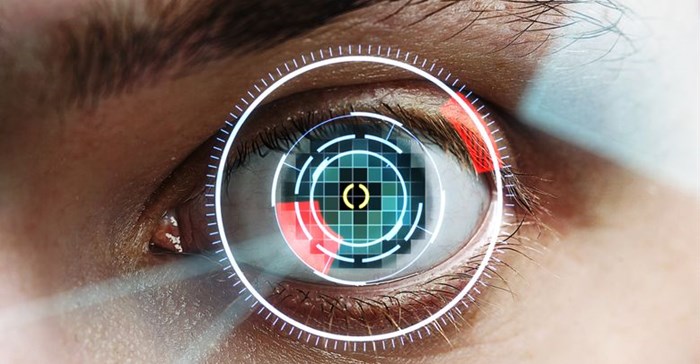
Top stories



LifestyleWhen to stop Googling and call the vet: Expert advice on pet allergies from dotsure.co.za
dotsure.co.za 2 days

AutomotiveHilux Custom Builds offers purpose-built solutions for your business
Toyota South Africa Motors 2 days

However, the use of biometrics in the business world is evolving. It's not only used as a form of identity and access management (IAM), but may soon be relied upon to help businesses communicate with each other more quickly.
This March, a company called SRI International exclusively licensed its iris scanners to be used in Samsung tablets for B2B mobile applications. The first of these licensed products was a Samsung Galaxy Tab Pro 8.4 that had a built-in iris scanner.
The aim of the technology is to provide a streamlined user experience along with quick and accurate biometrics security that supports IAM needs. SRI International says when its technology was tested, it was over a thousand times more accurate than data derived from fingerprint scans.
If this technology lives up to expectations, it's feasible that when a business representative wants to welcome the marketing director from a similar company into a secured building, these purpose-built Samsung tablets could keep security levels high. Furthermore, it'll do that without making the guest feel like the access authentication process is particularly arduous.
Businesses are often involved in purchasing raw components from other businesses that are necessary for making products for the consumer market. For example, a company that manufactures kitchen appliances may make several B2B purchases to get components quickly at the best price.
However, these transactions can still be delayed if a company or charge card issuer suspects fraud. MasterCard is launching a biometrics program that'll hopefully cut down on bogus purchases so transactions occur more smoothly.
At first, MasterCard's program will be limited to just 500 participants. Then, if all goes well, you can expect to see a much more widespread rollout. Purchasers will be identified through either their fingerprints or photographs. People must use a corresponding app when making their purchases.
When things are set up so facial recognition is the security method of choice, a purchaser must snap a picture of his or her face using a smartphone, and blink once. Blinking is necessary so people can't simply hold up a picture of an individual and trick the system.
In South Africa, Standard Bank has become a pioneer of using biometrics to fulfill IAM needs by allowing people to sign into the bank's mobile app through a fingerprint scan. Users who have Android-based smartphones with fingerprint recognition technology - it's currently offered on some Samsung and Huawei models - can use this identification method without having to enter a PIN. This feature could be useful for some people who work in their company's financial departments and are wary about unauthorized parties gaining access to confidential information.
This isn't the only way Standard Banking has paved new roads for its customers through innovative uses of technology. A couple of years ago, it began offering mobile banking solutions for people who may otherwise have to travel significant distances to reach physical branches.
In the same way an authorized person at a company might use IAM technology to access a Microsoft Office 365 account and see a file that a co-worker worked on a couple of hours before, a person in South Africa can now rely on Standard Bank's fingerprint authentication solution and its mobile banking app to bank on the go. That's helpful for businesses located in remote areas where there may be an absence of physical branches.
These are just a few examples of how the technology of biometrics is breaking ground with unexpected IAM solutions. Although they were discussed in relation to the B2B market, it's easy to see how some of them could be just as valuable in the B2C world.
